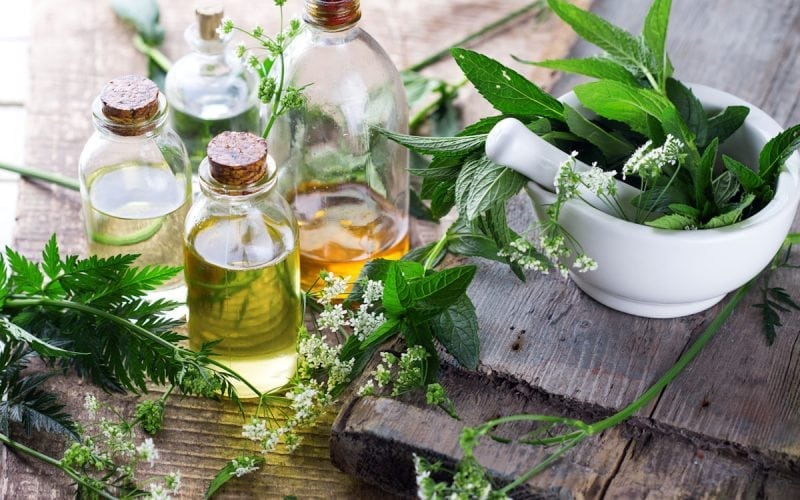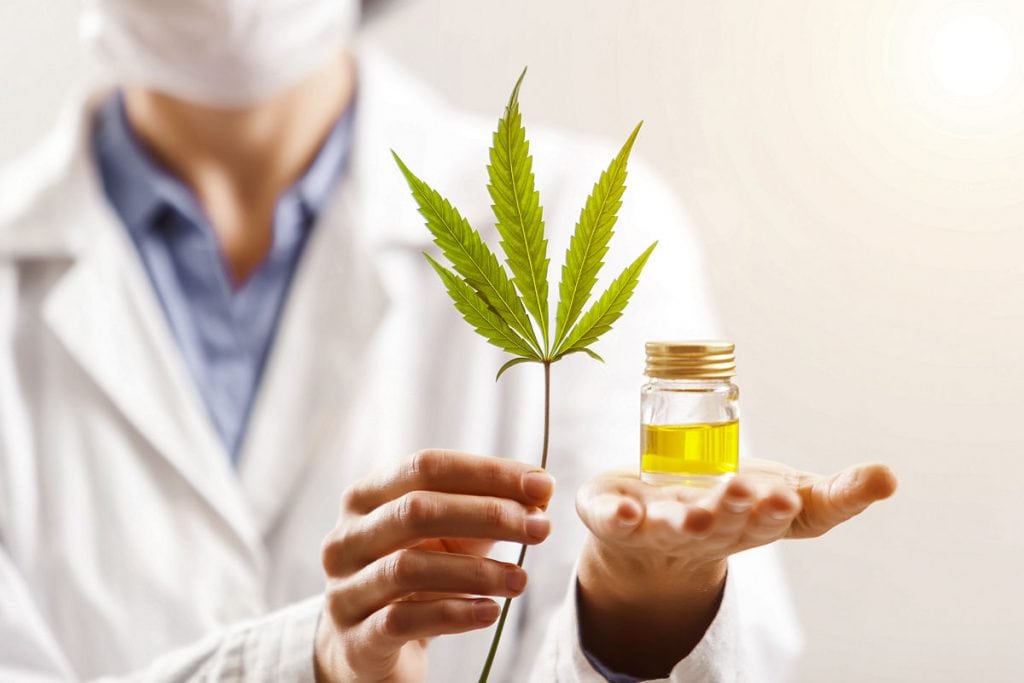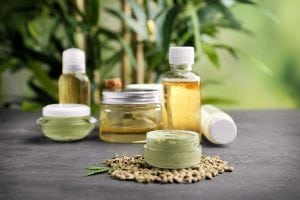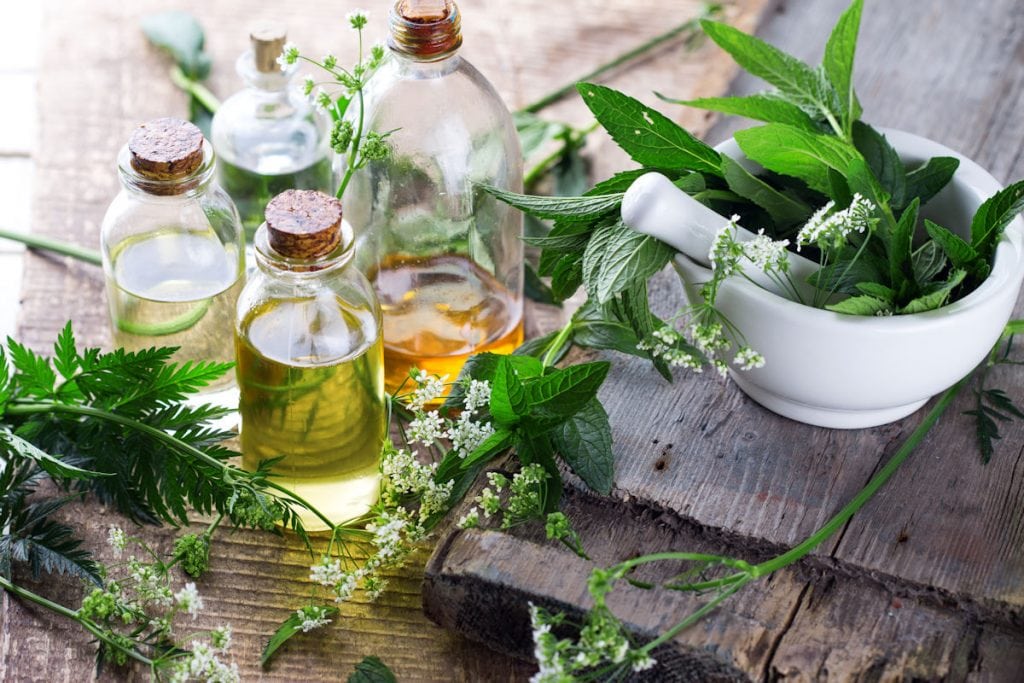
Why CBD is the talk of the cosmetic industry

The cosmetic industry is always promoting natural alternatives which will deliver real, positive changes to the condition of your skin, although it’s fair to say these can flatter to deceive. Take Roaccutane for example, a supposed treatment for acne – this remedy may work for some people, but many have experienced side effects of dry skin and itchiness as the drug totally stalls sebum production, which is necessary to some extent.
However, the science behind cannabidiol (CBD), a compound from cannabis with no psychoactive properties, suggests that genuine improvements to skin quality are possible with the right CBD products. CBD is part of a classification of cannabis chemicals called cannabinoids, and exhibits antimicrobial, antibacterial, antifungal and anti-inflammatory properties. Furthermore, cannabinoids are generally considered to be potent antioxidants.
Cannabis extracts rich in CBD can be infused into lotions, creams, salves and balms, which are then applied to the skin. Cannabinoid receptors are found in abundance all over the skin, with the CB2 receptors particularly useful – these can control inflammation by modulating immune system response.
Let’s take a more detailed look at the benefits of CBD in relation to aging, the autoimmune disease psoriasis and inflammatory condition acne.

CBD: the anti-aging antioxidant
CBD’s antioxidant properties have been well-documented for several years, and the US federal government has a patent on cannabinoids being used to make antioxidant drugs. These properties can have an impressive effect in combatting aging, by neutralizing uncharged molecules known as free radicals.
Free radical aging is a concept that uncharged molecules from pollutants, smoke, ultraviolet (UV) rays from the sun and elsewhere speed up extrinsic aging by destroying DNA in the skin, which it manages by stealing electrons. Extrinsic aging accounts for up to 90 percent of all aging.
The more the body is exposed to free radicals, the faster aging occurs – a process typified by saggy skin, deep lines and wrinkles and a loss of youthfulness. Free radical aging is why smokers often look older than they are. However, not all free radicals are avoidable, which is where antioxidants come in. Coating the skin with CBD creams rich in antioxidants helps to protect from external factors.
Sadly, there’s no way of stopping aging altogether, as intrinsic aging is a natural process – over time, the body creates less elastin and collagen, vital proteins for keeping the skin taught and vibrant.
CBD: a useful tool in the fight against psoriasis
Researchers eventually came to an agreement that psoriasis is an autoimmune disease that stimulates pro-inflammatory proteins such as cytokines, which in turn inflame the skin. However, there are signs that by reducing inflammation through regulation of the endocannabinoid system, CBD can bring the symptoms of psoriasis under genuine control.

CBD has intriguingly easy access to the immune system, and the CB2 receptors that are used to send signals to it are expressed in the skin. Naturally, if the root cause of the psoriasis can be tackled, then this will mitigate many symptoms of the condition. CBD calms excessive inflammation in the skin by blocking cytokines.
Psoriasis interferes with the skin cell cycle, forcing new cells to the epidermis – the skin’s top layer – too quickly for them to be removed. As these cells accumulate on the surface of the skin after just three or four days, they begin to make the skin look patchy.
However, there simply isn’t much clinical research into CBD and other cannabinoid treatments for science. There is so much to explore with the endocannabinoid system, and readily available high-quality cannabis for research purposes is sometimes lacking still. But from surveys and stories of psoriasis patients published online, there are indications that CBD can help with the skin disorder.
CBD: a promising treatment for acne
Acne is a skin condition that affects all age groups, although teenagers and adults in their 20s tend to suffer most from it. The skin complaint causes the sebaceous glands to become overactive, creating more sebum than necessary, which leaves the skin oily and dirty. Acne is particularly prevalent in the West, with up to 90 percent of teenagers afflicted with the disease. Around the world, acne could affect as many as 600 million people.
Contrary to popular opinion, the skin does need sebum. Without it, the skin would become dry and cracked. Sebum also protects the skin from bacteria by creating a barrier that prevents harmful microbes from being absorbed into the body. Sebum also encourages dead cells to rise to the epidermis where they can be naturally shed from the skin. However, when the immune system instructs for an extreme inflammatory response, the sebaceous glands start making too much sebum. In addition to damaging the aesthetic appearance of the skin, the excess oil clogs up pores in the skin, which can trap bacteria and dirt – this can lead to infection.
Infection often leaves the skin looking red, which some people end up making worse by scratching and picking (this tends to just bring more bacteria and dirt to the affected area). When infection strikes, the immune system tries to help by directing white blood cells to kill off the bacteria. Unfortunately, the white blood cells are rarely useful, and regularly lead to pimples and zits.
Acne has always been a puzzling skin disease that dermatologists have struggled to understand – hence why there is a distinct lack of effective treatments for the condition. But researchers now have some novel ideas thanks to the endocannabinoid system’s presence in the skin.
The ideal situation for the body is a steady, balanced production of sebum that lubricates and waterproofs the skin without making it oily and prone to infection. This is achieved by homeostasis, which can be facilitated by a well-functioning endocannabinoid system. Endocannabinoids are needed to regulate immune system response and prevent needless inflammation. However, when a person has an endocannabinoid deficiency, there’s nothing to stop the inflammation, and the body starts attacking itself. CBD works to build up endocannabinoid levels so that inflammation can be regulated.
